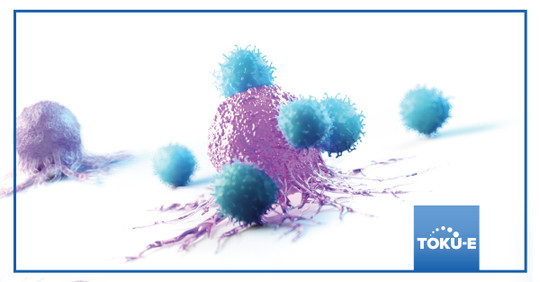Researchers at Dana-Farber Cancer institute have discovered that the natural product Novibiocin, an antibiotic developed in the 1950s, can target and kill cancer cells that have abnormal BRCA genes, a gene involved with DNA repair. This glitch leads tumor cells to accumulate genetic damage, and die.
Researchers at Dana-Farber screened thousands of molecules using BRCA-deficient tumors as a model to see if they had any effect on tumor growth. Screening was done in laboratory cell lines in organoids, 3D cultures of tumor tissue.
Of the many compounds tested, Novobiocin stood out. This DNA gyrase inhibitor currently used in veterinary medicine but not the clinic, can selectively kill tumor cells that have abnormal BRCA1 or BRCA2 genes. BRCA mutations, whether inherited or acquired, are found in a large percentage of various cancers, including breast, ovarian, prostate, and pancreas. Novobiocin was effective even in tumors resistant to poly (ACP-ribose) polymerase inhibitors (PARPi), which have become a prime therapy for cancers with DNA-repair glitches such as homologous recombination (HR)-deficient cancers. Novobiocin can selectively kill HR-deficient tumor cells in vitro and in vivo. However, resistance to PARPi has emerged as a major clinical problem.
Novobiocin was found to target DNA polymerase theta (POLQ), an enzyme involved with DNA repair. POLQ is a synthetic lethal. It binds to the POLQ domain, inhibiting its ATPase activity. Increased POLQ level can predict the sensitivity of Novobiocin. Clinical trials are underway to see how Novobiocin behaves in the clinic and finds new use to help combat cancer.
References
Burlison JA et al (2008) Development of Novobiocin analogues that manifest anti-proliferative activity against several cancer cell lines. J. Org. Chem. 73(6):2130-2137
Dana-Farber Cancer Institute. (2021, June 17) Antibiotic Novobiocin found to kill tumor cells with DNA-repair glitch. [Press release]. Link.
Zhou J et al (2021) A first-in-class polymerase theta inhibitor selectively targets homologous-recombination-deficient tumors. Nature Cancer 2:598-610

